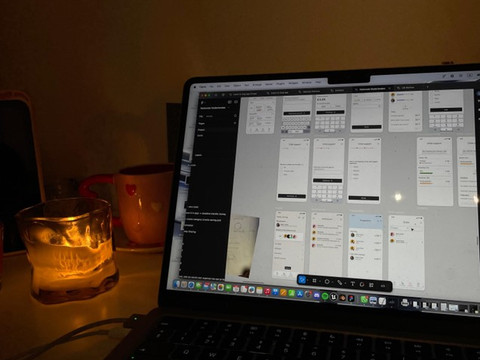Have you just moved to the Netherlands and wondering what the grading system looks like? Did you pass your exam with a 5.6? What are resits? What's the difference between blocks and semesters? And how does group work even work?!
We’ve all been there. The Dutch academic system can be a bit confusing at first, especially if you’re used to a different grading system or study rhythm. That’s why I’m here to walk you through it all- from understanding grades and ECTS (it’s a big deal) to figuring out semesters, blocks, and how to make sure everyone actually contributes to group projects.
What do the grade numbers mean in Dutch academic system?
If you receive:
10 - If you get a 10, you must be some sort of genius. Almost no one gets a 10.
9- 7 - You did very well; you probably studied every sentence in the book, hah! You’re aiming for the honours programme.
6- 5.5 - Good job, buddy - you passed, and that’s all that matters.
5.4 and below - Uhh, so close and yet so far. Everything below 5.5 is a fail, but no worries – there’s always a second chance ;)
Resits – your second chance
If you didn’t pass an exam or an assignment, don’t stress. Resits are a thing! It’s normal to feel bummed after a failed exam, but hey – it’s not the end of the world. Just try to see it as an opportunity to grow and improve. The Dutch student philosophy is about figuring out what works best for you and coming back stronger next time!
You can resit each component once per academic year. The most important thing is to keep your credits on track (I’ll explain more in a bit). When do resits take place? Right after the block ends. So, if you need to resit your first exam from Block 1, you’ll have the opportunity to do it after the exam of Block 2.
Your Hanze academic calendar explained
Each academic year has 2 semesters, and each semester is divided into 2 blocks. So, in total, there are 4 blocks per year.
Each block lasts 9-10 weeks:
-
7-8 weeks of classes
-
1 week for exams
-
1 week for feedback, check-ups, or self-study in preparation for exams
That means one block is roughly two and a half months long.
Weekly study load
Since it’s a full-time study programme, you should think of it like a full-time job. Meaning around 40 hours per week (ideally). Of course, some people read and remember material faster or slower, but on average, that’s the time you’ll need. These 40 hours include attending lectures and seminars, working with your group, writing assignments, and reading the required materials.

Group projects – what to expect
If you don’t consider yourself a team player, then it’s time to start adjusting, because one of the main and constant parts of your studies here is working in a group. Honestly, it’s an experience that teaches you a lot about people and how to work with different personalities.
Don’t worry, you won’t have to figure it all out on your own. You’ll have a mentor to guide you through the process. You’ll also be expected to create a team contract that outlines the roles and responsibilities of all members. Together, you’ll agree on things like how many mistakes or “strikes” a person can make before facing removal from the team. Your teacher will review these agreements to ensure they’re fair for everyone. By doing so, you ensure that everyone contributs equally to the team and receives a fair grade e at the end.
Feedback is not criticism
Don’t forget, you’re in the Netherlands now. Teachers here are direct and will most likely focus only on the things you need to improve. That’s okay!! It doesn’t mean you didn’t do anything right. In fact, it’s super beneficial, because when they get straight to the point, you know exactly what to work on and how to grow.
Attendance matters
In many courses, attendance will be taken into account when determining your final grade. It might represent a small portion, or in some cases, you may not be allowed to sit the exam if your attendance is too low. How strictly this is enforced depends on the course, but it’s not worth the risk. If you can’t attend, it’s best to email your teacher or lecturer in advance. Attending classes is also beneficial for you, as everything that is covered may appear in the exam or be required for your assignments.
Understanding ECTS
ECTS stands for the European Credit Transfer and Accumulation System. It is used by universities across Europe to measure and compare learning achievements. Each course and exam is worth a certain number of ECTS credits. Each academic year, you need to earn 60 credits to stay on track. It is important to monitor your credits to ensure you are progressing in your education.
Final thoughts
When I first started studying in the Netherlands, I was definitely confused and didn’t know what to expect. I didn’t know what counted as a good grade and how the blocks worked, because the system in my country (Bulgaria) is very different. However, I assure you - it all starts to make sense pretty quickly. The key is to stay organised, ask questions when you’re unsure, and not be too hard on yourself if things don’t go perfectly from the start.
Author's info
-

Hristina Petrova
Hey! I’m Hristina Petrova, an International Communication student from Bulgaria. You’ll find me at my happiest when I’m singing along loudly to just about any song, trying out a new TikTok recipe, or glued to a TV series I simply can’t quit, no matter how questionable it gets. Add coffee to the mix, and you’ve basically got my personality summed up!
Feedback component
How satisfied are you with the information on this page?





